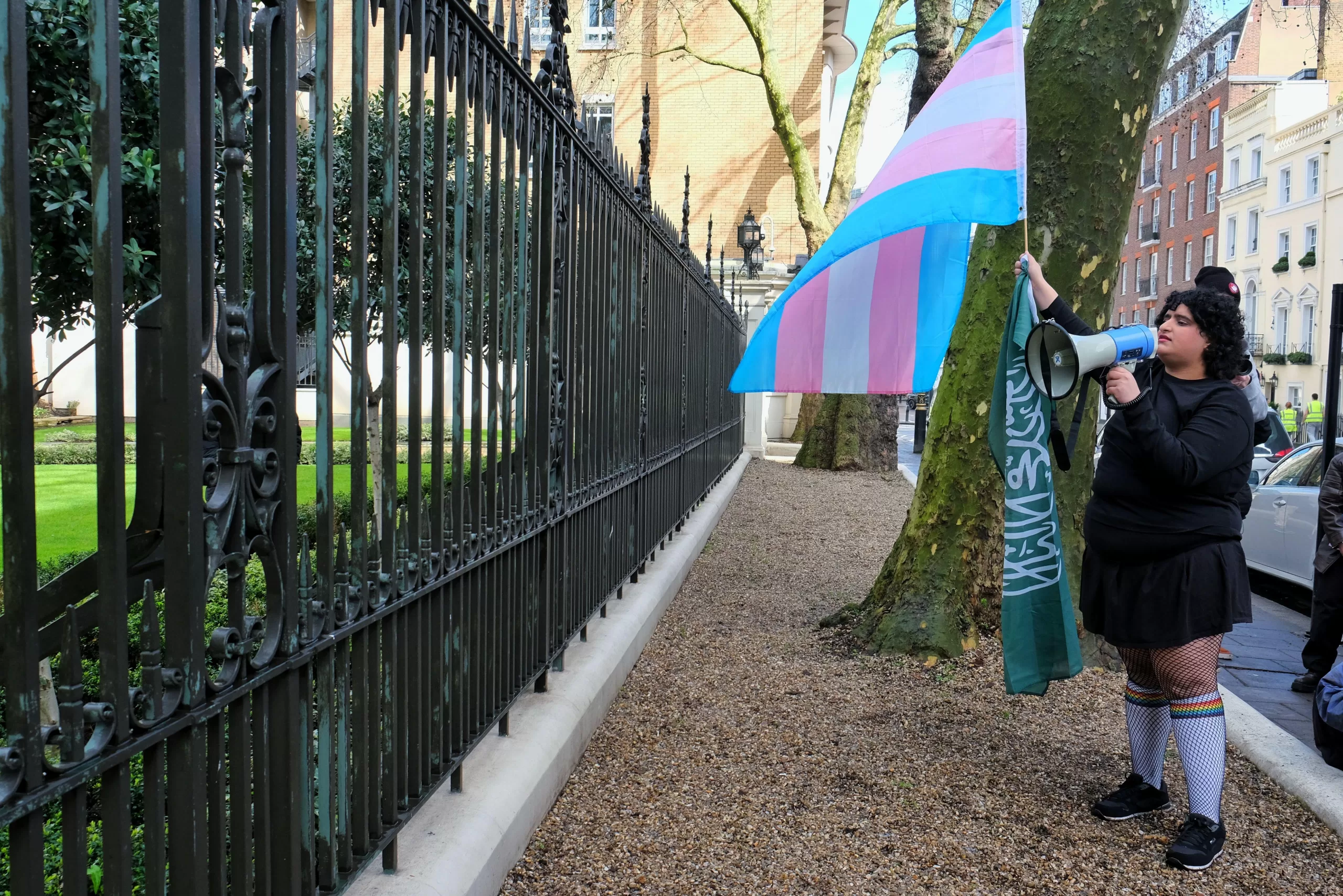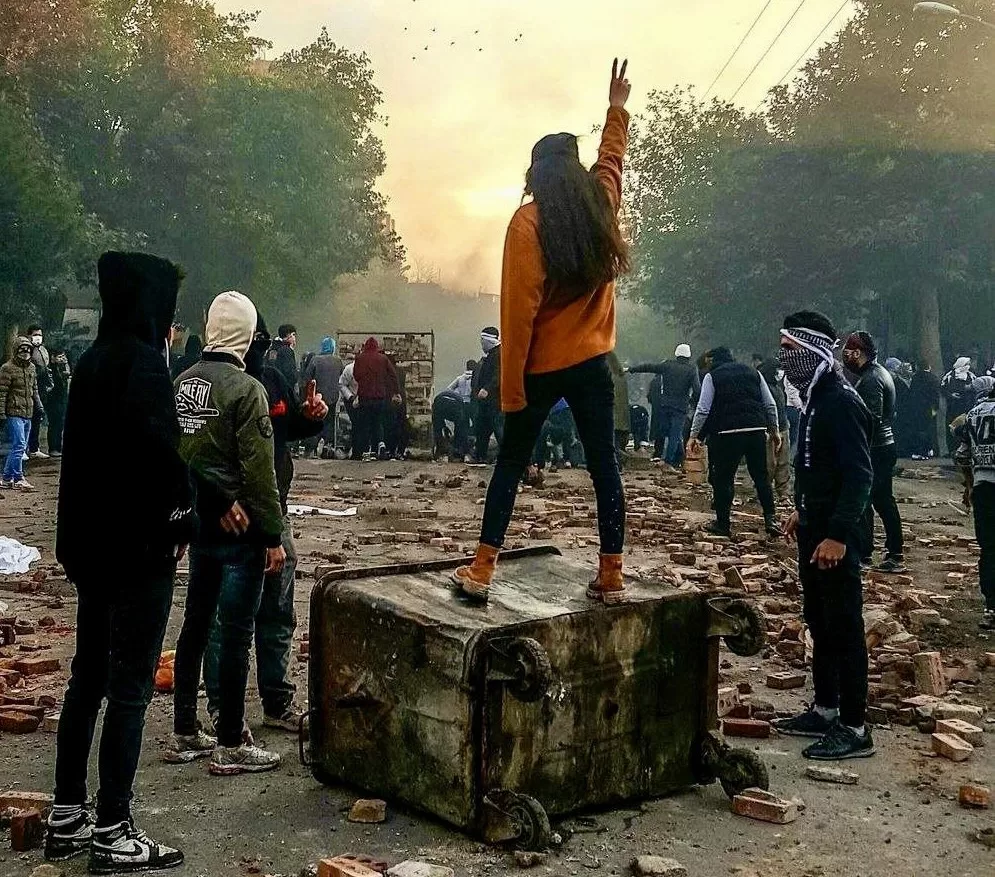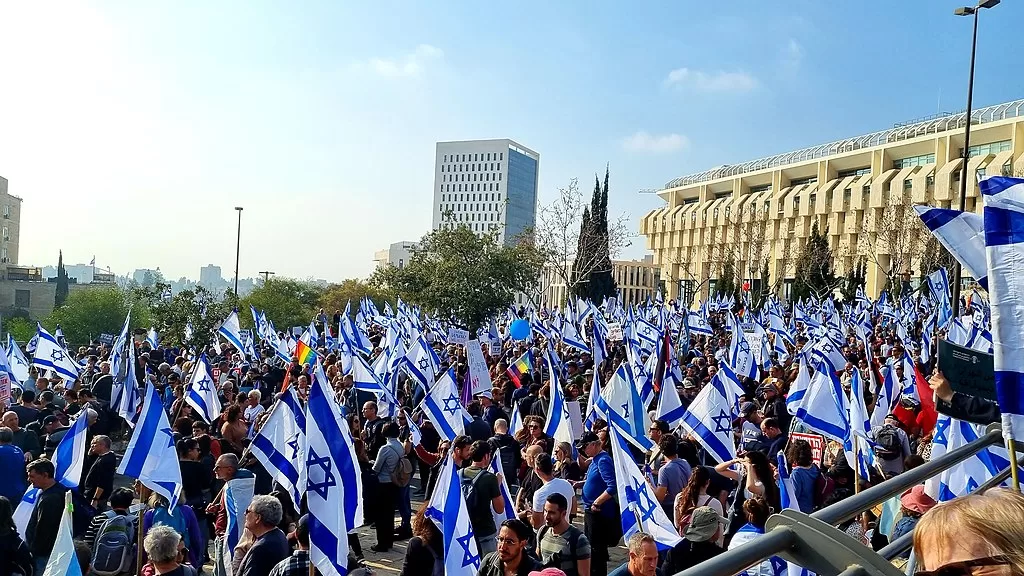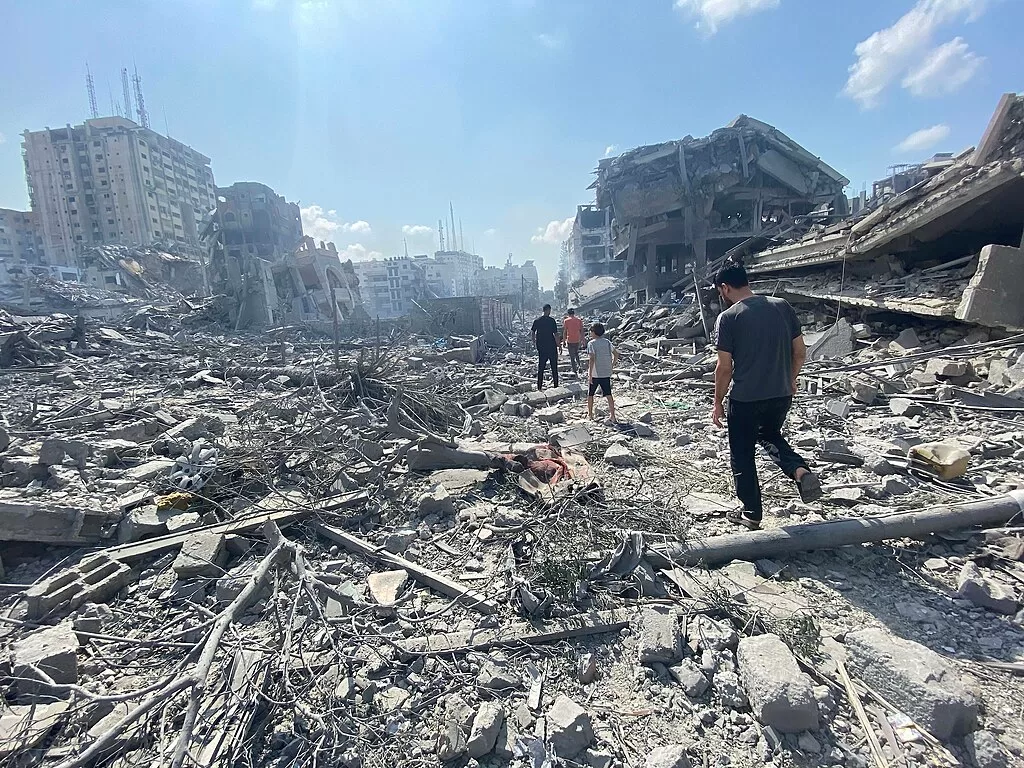A note from the authors: The piece published below was originally written for and pitched to Vice World News, who wanted exclusive publishing rights for it. Subsequently, the piece was delayed for weeks on end, while the editorial staff informed us that this was because the publication maintained a team in Saudi Arabia and they were worried about safety.
We were concerned privately that this could amount to a case of catch-and-kill, so asked to be released from the contract to find another publisher. We were then told from a senior executive that they still wanted to publish the piece, and that it would be out within the next two weeks following this discussion. After this period, we were let go from our contract, with the piece not being published and with no more concrete update as to the precise nature of the problem. Following that, the story behind our piece was among those picked up by the Guardian, as part of an investigation into a pattern of behaviour at Vice with regards to Saudi Arabia.
The resulting noise created by the publication of the Guardian article helped us make the connections and get enough attention to be able to help place this important piece instead with Index on Censorship.
In the wake of the tragic death of a Saudi trans woman who was coerced back to the country before taking her own life, LGTBQ Saudis are speaking out against threats they receive from their families and their fear of state authorities.
Gay, trans, and queer Saudis living in the UK and US spoke to XXXX [see note at the end of this article] about growing pressure from back home, including fear of issues such as digital surveillance, paid informants and the involvement of Saudi officials.
Many of those interviewed about their experiences claimed that the Saudi state is actively helping families to harass and threaten their children, even after they have claimed asylum in the West.
“Accepting yourself as a member of the LGBT community, the day that you admit yourself that you are a gay Saudi or a trans Saudi is the same day that you accept that you can get killed at any minute, whether you are in Saudi Arabia or outside,” Kansas-based LGBTQ dissident Abdulrahman Alkhiary, professionally known as Wajeeh Lion, told XXXX over Zoom. Under Saudi law, homosexuality is an offence that can result in the death penalty.
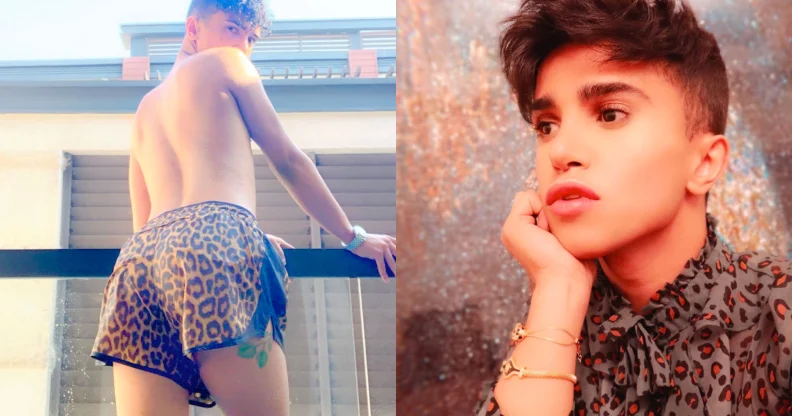
Suhail al-Jameel said they were sentenced to three years in jail for posting this photo. Credit: Suhail-al-Jameel/X (Twitter)
For LGBTQ Saudis, online visibility can be dangerous. A gay Saudi influencer (Suhail al-Jameel, pictured) was given three years in jail for posting a photo of himself wearing shorts on a beach in 2019. A TikTok creator was arrested in 2022 for a video with ‘lesbian undertones’; two male journalists were outed as gay in retaliation for contact with foreign media; and authorities have even seized rainbow-coloured toys, claiming they encourage homosexuality.
In another recent video, nonbinary Saudi citizen Tariq Ali described how they had been arrested and charged with a “cyber information crime, for creating, sharing and sending content that hurts the national system, religious values and social morals, using the internet”. Ali claims that Saudi authorities “violated my privacy completely, stole my videos and photos and watched them, then prosecuted me for it.”
These incidents contradict Saudi Arabia’s efforts to present itself as more progressive to the outside world, including by relaxing female guardianship laws and allowing women to drive. The Saudi tourism authority recently updated its website to claim that LGBTQ travellers would be welcome to visit the country.
The dangers facing LGBTQ people born in Saudi came into sharp focus following the death of a young transgender Saudi woman named Eden Knight in March 2023. Knight’s suicide note said that her family hired US private investigators, with assistance from a Saudi official, to coerce her back to the country. There, she was forced to de-transition, and later died by suicide. Her family is wealthy and well-connected to the regime. Her father, Fahad al-Shathri, is a deputy governor at SAMA, the Saudi Central Bank. We reached out to the al-Shathri family ahead of this article being published for comment but received no response.
After Knight’s case made international news, LGBTQ Saudis in the UK organised a protest outside the Saudi embassy, where a number of people spoke to XXXX about their experiences. Many of those who spoke agreed to do so on condition of anonymity fearing repercussions from their families or the Saudi state. Most used their chosen names rather than their birth names.
Yara, an 18-year-old trans woman from Riyadh, has been in the UK for nine months and received asylum status. She says her family used to lock her in her room and forbid her from seeing friends, determined for her to get married and follow a traditional lifestyle. “They tried to kill me but I escaped,” Yara says. After she left, they called her daily, telling her to return. “A lot of people I know here, their family came to the UK to chase them,” Yara told us.
Fear of the Saudi state is referenced frequently by LGBTQ dissidents living outside the country. “It’s happening for all of us. Sometimes they go to our friends and offer them a large amount of money to give them our information,” said Prati, 23, a nonbinary Saudi protester. They added that families lie to their children to make them return, but “it’s always the same lie because the government or the embassy is saying ‘that’s what to say’ to their children.”
Saudi Arabia’s ruling family, the Al Saud, who gave the country its name, sit on top of the state’s patriarchal system. Yet the male control of power extends to most other Saudi families, and it is the men in these families who are responsible for the abuse reported by those interviewed for this article.
Dave, 37, who grew up in the Saudi city of Jeddah and the UK, told XXXX that he was subjected to serious abuse as a child. “My dad once took me to an industrial slaughterhouse when I was 10-11 years old to make me more ‘man’ and less ‘girly.’ He forced me to slaughter sheep in that place,” he said. “I had nightmares for weeks.”
Dave said his family “tried to lure me in many ways and gave me a couple of ultimatums to get married to a woman. My father once secretly colluded with the head of a hospital and a psychiatrist to coax me into conversion therapy. The psychiatrist deceptively befriended me and tried to convince me that he could cure most gay men, except if they were bottoms.” In some Middle Eastern cultures, playing a submissive or ‘female’ role in sex as a man is seen as more shameful than being a ‘top’.
Dave also claimed that another of his father’s friends, who worked for the Saudi state, allegedly threatened him. “I said I wanted to seek asylum, I couldn’t say I was gay. The guy threatened me, saying ‘we can get you back from any place in the world’.” Dave’s experiences resemble those of LGBT Saudis interviewed by The Athletic in 2021, which reported “multiple allegations of attempted cure therapy in some of the country’s celebrated “mental health” hospitals”.
Knight’s note, as well as messages reviewed by XXXX, said her family had hired “fixers” and a lawyer in the USA to pressure her to detransition.
“I cut my hair, I stopped taking oestrogen, I changed my wardrobe, I met my dad. And then had another breakdown. My mom kept telling me to repent or I was going to hell,” she wrote in the note.
The US government is now investigating Knight’s death and its connection to both US operatives and Saudi state-linked officials, telling VICE News: “We have seen these reports and are studying these allegations”.
Vague Saudi laws criminalising parental ‘disobedience’, cross dressing, and “disrupt[ing] the order and fabric of society,” mean that LGBTQ Saudis are vulnerable to abuse by family members because of their sexuality and gender identity.
Laura, 25, a trans Saudi refugee who lives in the UK, told XXXX she had endured terrible hardships growing up in Saudi Arabia. “My family found out that I am transgender, so they started to oppress me with all kinds of abuse that you can imagine,” she said, speaking to us at the protest “I was sexually harassed and assaulted, one of my uncles sexually assaulted me.”
Other attendees at the protest described their inability to trust people after being abused by family members because of their sexuality or gender identity. Emma, age 17, a nonbinary Saudi who has claimed asylum in the UK, told XXXX that following the protest at the Saudi embassy which they attended, bounties issued by anonymous Saudi accounts on Twitter were put on people who took part in the protest offering money for information about them. Several other attendees said they had had the same experience.
Saudi attempts to control Twitter discourse have been widely reported, with the use of bot armies, and even a spy who infiltrated the company to gain access to users’ private information. In 2022 a Saudi student who was studying at Leeds University in the UK was given a 34 year prison sentence after returning to Saudi Arabia to visit family, her only crime being a Twitter account where she followed and retweeted Saudi dissidents.
XXXX spoke to Micro Rainbow, a social enterprise supporting LGBTQ refugees and asylum seekers in the UK.
“When it comes to people from Saudi Arabia, there is definitely a sense of anxiety around being connected to people from their communities… coming from the fact that they fear that their family members have sent someone to find where they are,” CEO Sebastian Rocca said.
“We had a case of someone [from Saudi Arabia] who had to change their phone number three times because people from the community found it out…we had another where someone told us that their friends were offered an insane amount of money if they had disclosed their location…the pressure from the families is very, very real.”
“The people we support often come from very wealthy families and because of that their families have the means to send an investigator to the UK or to come themselves and look for the people we are supporting.”
For LGBTQ Saudi refugees who have reached the UK, the key, Rocca said, is to get in contact with an aid organisation for safe housing or specialist legal advice. He urges any LGBTQ Saudi refugees and asylum seekers to contact a relevant organisation as quickly as possible due to recent legislative changes in the asylum-seeking process, any delay will work against them in their case.
At the protest for Eden Knight, Yara told XXXX that “I would like to get a word to Saudis who claim asylum here… You are so strong, you are worthy. Don’t let your family let you down. Just continue your life, continue to love. Everything will get better.”
This article was originally meant to appear on Vice and we decided against inserting Index to interviews and stuck with XXXX. We contacted Vice for comment but they have not responded. However, the Vice Union have since issued a statement in response to the Guardian story, which you can read here.

